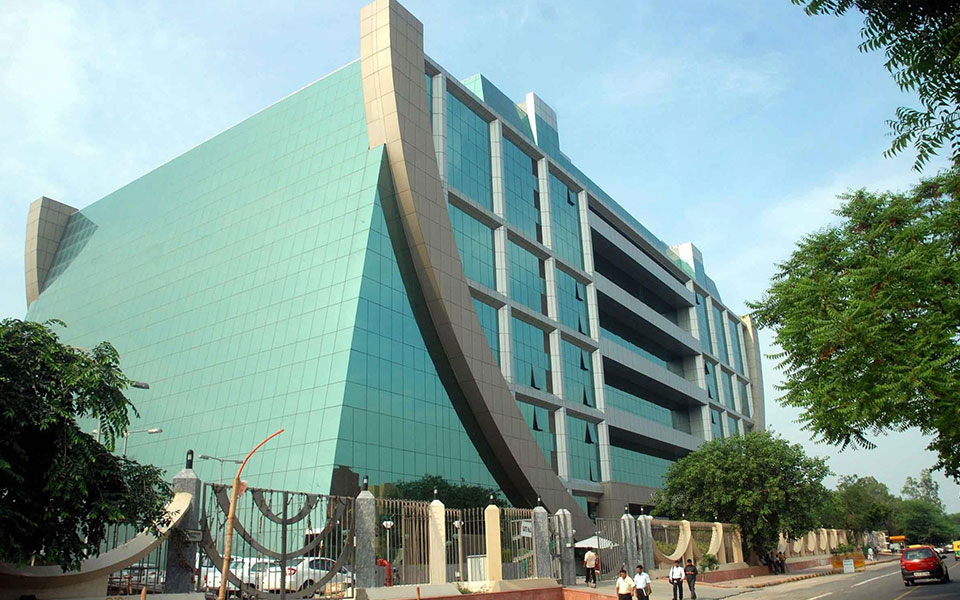Pune, June 6: The CBI has registered a case against the Principal of Pune-based National Defence Academy (NDA) and four other employees of the institute, including a professor, on charges of irregularities in the appointment of teaching faculty to the organisation's different posts, the agency said on Wednesday.
Separate Central Bureau of Investigation (CBI) teams on Wednesday conducted raids at multiple locations, including residences and official premises of the accused persons, in Maharashtra's Pune.
Besides NDA's Principal Omprakash Shukla, Jagmohan Meher - a Political Science professor, Vanita Puri - an associate professor of Chemistry, Rajiv Bansal - an associate professor, Maheshwar Roy - the Head of Department of Chemistry and other unidentified persons of the UPSC (Union Public Service Commission) and IDS (Integrated Defence Staff, which comes under Ministry of Defence) have been named in the CBI FIR.
The FIR was lodged on Tuesday following a complaint of malpractices in the recruitment process of teaching faculty in the academy.
"We registered the FIR based on a complaint about irregularities in the selection/ appointment to different posts of teaching faculty in NDA," a CBI official said in Delhi.
The CBI FIR alleged that that certain faculties of the NDA entered into a conspiracy with unknown officials of the UPSC and the IDS.
"They got selected and appointed to different posts of teaching faculty in NDA without possessing teaching/ research experience as prescribed by the UPSC and as required by Ministry of Defence on the basis of the forged and false certificates," a CBI official said.
The CBI alleged that Shukla has been the Principal of the institute since 2011. "The alleged corruption in appointments started way back in 2007, when he applied for the post of professor," the official said.
"These teachers were involved in fudging the API (Academic Performance Indicators) of candidates who were not qualified to be professors at the institute," he said.
According to the CBI, the appointment of civilian academic officers, including the Principal, Vice Principal, professors and assistant professors at the NDA, is done through the UPSC.
The UPSC publishes an advertisement inviting applications in which qualification criteria are listed. Two important criteria are API points and academic experience.
At least 15 such appointments have been made since 2007, sources said.
Meanwhile, a NDA spokesperson said: "NDA was apprised of the allegations by the CBI team on their arrival this morning. They had with them relevant documents authorising the procedure for necessary investigation."
"It is clarified that the issue related to allegations of submission of inappropriate documentations by some academic faculty members at the time of their selection and appointment to NDA by the UPSC. Necessary actions are at hand and due procedures will be followed," he added.
Let the Truth be known. If you read VB and like VB, please be a VB Supporter and Help us deliver the Truth to one and all.
Hyderabad (PTI): Telangana Chief Minister A Revanth Reddy met Union Home Minister Amit Shah in Delhi on Wednesday night and urged him to increase the sanctioned strength of IPS officers to the state in view of its growing administrative and security needs.
The two leaders also discussed the recent surrender of several senior Maoist leaders before the Telangana Police and other issues.
"During the meeting, the two leaders discussed the issue of Maoist surrenders and their rehabilitation. The chief minister informed Shah that significant improvements in policing have taken place in Telangana over the past two years," an official release here said.
Highlighting that 591 Maoists have laid down their arms and joined the mainstream of society during this period, the chief minister said the state government was providing them compensation and rehabilitation assistance as per the rules.
He requested the Union home minister to extend financial support from the central government for development works in the backward regions of the state.
Reddy also urged Shah to increase the sanctioned strength of IPS officers to the state from 83 to 105 in line with the state's growing administrative and security needs, the statement said.
The first cadre review after the formation of Telangana was conducted in 2016, while the next review, due in 2021, was delayed and finally carried out in 2025. Even then, only seven additional IPS officers were allocated to the state, the chief minister informed Shah and requested that the third cadre review be conducted in 2026 as per the schedule.
Reddy explained that Telangana, like the rest of the country, is facing several modern challenges, including cybercrime, drug trafficking, white-collar crimes, and other emerging security threats.
He highlighted the reorganisation of the Hyderabad, Cyberabad, and Malkajgiri Police Commissionerates, the proposed formation of the Future City Commissionerate and the rapidly growing population in Hyderabad to underline the increasing administrative requirements of the state.





